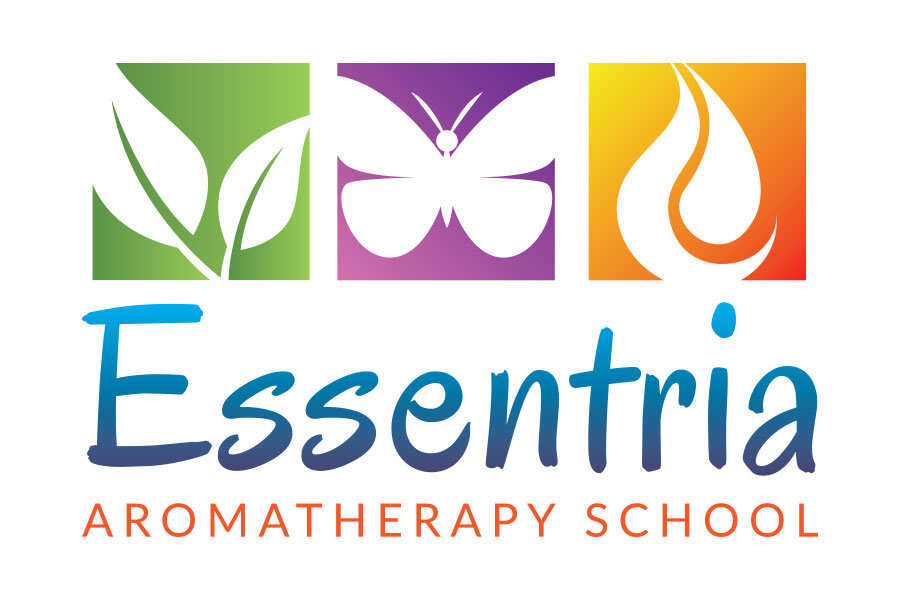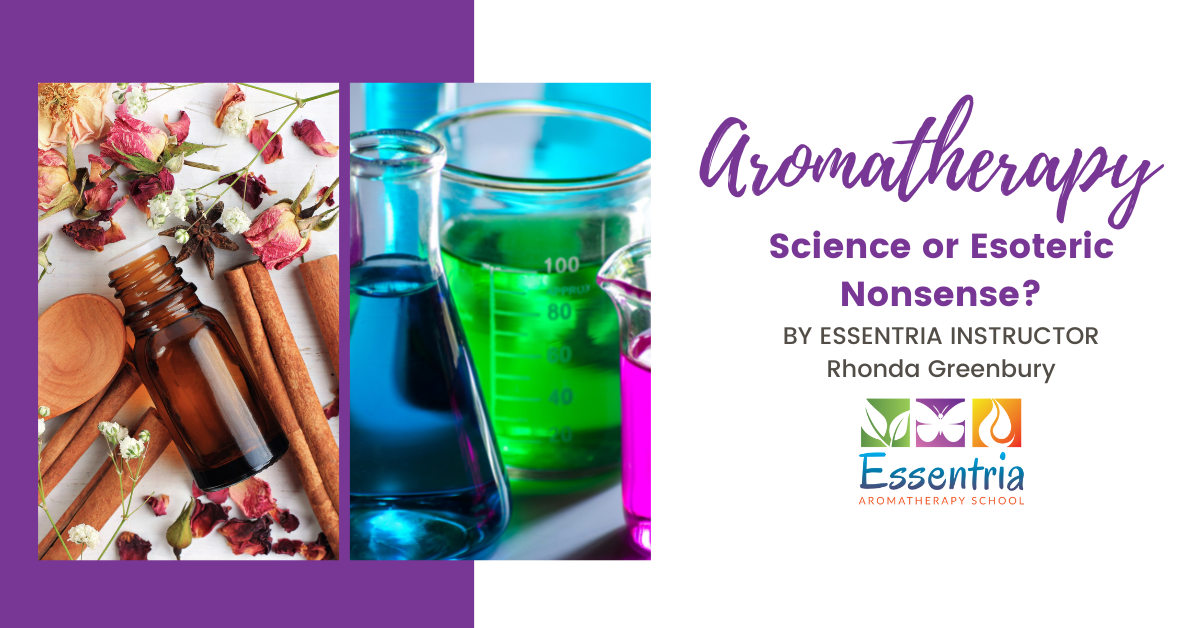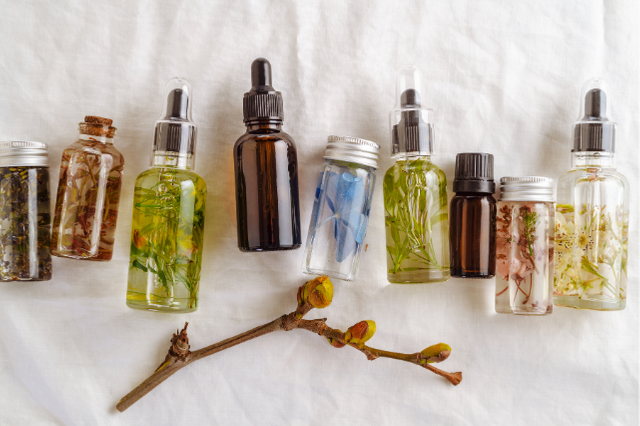Aromatherapy - Science or Esoteric Nonsense?
Opinion Piece by Rhonda Greenbury
Science can be defined as many things, but in general it's an organization of knowledge on a particular subject (1). Generally speaking, science usually requires experimentation and observation of theoretical suggestions proven to be true by practical results. This can be explained in a lengthy blog of its own, this definition is only placed here for easy reference and does not fully encompass all things science by any means.
Esoteric is a small body of knowledge understood by only a few individuals and usually refers to the spiritual community (2).
While arguably aromatherapy is only understood by a small number of individuals, there are thousands of studies and qualified individuals on the topic, so it's definitely not non-sense at all or esoteric! Although there can definitely be spiritual uses, some of those benefits are actually better explained using science, at least to the science minded individuals out there.
Evolution of science as it relates to Aromatherapy
In layman's terms, or maybe caveman’s terms, science has always been evolving, since its inception. One could say we once went from dividing non-living things and living things, to further categorizing them into specific types of living and nonliving things. For example humans and animals, or metal and air. As science continues to evolve, each category gets further fleshed out into more details, for example animals are now specific types of animals, like cats and dogs and then further fleshed out into breeds, etc. It probably didn’t happen exactly like that, but you kinda get the point, science is a continuously growing field and aromatherapy is a major player in the science world.
Therapies and studies using them have also evolved much the same way. For example using plants therapeutically actually existed long before the science of pharmacology developed pharmaceutical drugs or pharmacotherapy (drug therapy). The benefit of drug therapies is that the combined compounds can be patented and measurable for more effective targeted therapeutic effects. The downside is, it's not usually natural, most if not all drug therapies have side effects, for example an antibiotic can permanently kill good bacteria of the gut and have lifetime consequences and there are many ethical disputes around the pharmaceutical industry, such as it is a for profit vs for health industry.
Plant therapies are documented as early as biblical times; those who study religion have read about the wise men bringing Frankincense and Myrrh to baby Jesus. Biblical references are likely the earliest and first ever known publication of plant therapies. In 1874, a German Eqyptologist discovered a detailed document dated 1550 BC that lists over 800 medicinal uses of plants and aromatics (3).
Interestingly, one of the major most recognizable developments of the drug industry was the discovery of antibiotics in 1932 and similarly, Rene Gattefosse coined the term Aromatherapy in the 1930s. So what came first, the chicken or the egg, metaphorically speaking? Or more bluntly in this case, plant sciences or drug sciences? “The modern pharmaceutical industry was born from botanical medicine” (4) according to an article published on Science Direct. It's pretty obvious botanical medicine has been around thousands of years longer than pharmaceuticals.
So why are we so quick to assume natural healing and aromatherapy is pseudoscience?
Because we actually don’t know enough about the science of plants to be sure of anything just yet. You can see that by the countless medical studies that wrap up many studies with statements that more studies need to be done to conclude anything.
But do we really need more aromatherapy studies to trust the science is truly there? Or do we need to have a better understanding of what we're looking at?
I’m not sure anyone can have a full answer to either question, but the truth is, even proven studies come up short on reliable science at times. Science isn’t really black and white at all, it's just a plausible explanation based on experimentation and observation. And if we use many of the same principles and approaches with aromatherapy, we will find things are actually effective and working, most of the time.
Perhaps scientists are quick to insert the line about needing more studies because of their lack of knowledge on the particular topic. Schools sponsored by government bodies and public institutions are not known for teaching in the holistic fields outside of a few general interest courses or continuing studies. Most holistic programs are offered by private colleges and the curriculum isn’t given the same level of credit as a public institution, at least in Canada. The education isn’t necessarily less at all, in fact most private schools teach well beyond what a public institution would in terms of hours per tuition dollar, but holistic studies have had a bad reputation for a long time and many believe this is because of “big pharma”, whatever that truly means. We're not here to debate the ethics of the medical industry, but we do hope this blog will give you some other things to think about.
Just a quick google search of the term “aromatherapy studies” will return over 38,400 results. Just about every study opened continues to state more studies needed all while commenting that there was improvement in conditions.
Using that same google search of the term “medical studies” returned over 4.75 million results and “drug therapy” returned over 3.46 million results. About half the results concluded that medical or drug therapy study results were positive, half seem to also state that more evidence was necessary.
Are scientists just afraid to say something works maybe vs more studies truly being necessary? It's hard to know without talking to that specific scientist, but a quick search online suggests that’s more likely to be the case.
So the truth is, we're quick to assume aromatherapy is less effective, because that’s the narrative the medical communities are trained in. The medical community focuses its time and efforts on studies as it relates to products that can be patented, leading to some public ethical debates on prescribing practices and the medical profession. More often than not, aromatherapy studies show positive results, it's just not widely accepted and promoted in the science community.
So how is aromatherapy truly science?
Simple answer, chemistry! But there is of course far more to consider than just chemistry.
Basically everything on the planet involves chemistry, including aromatherapy. Each plant is made up of anywhere from dozens to thousands of chemical compounds found in nature and many found in the human body too! In fact it is suggested that carbon is found in all living things, that includes all essential oils.
Chemistry is basically the route to pharmaceutical development too.
But like most things in medical science, aromatherapy has its fair share of successes and misses, don’t let the misses dissuade you from trying this amazing therapy and working with a qualified professional.
The biggest challenge of aromatherapy is the chemical constituents will vary by the oil, the environment it was harvested in, and its processing. Because of the chemical variances, dosing accurately can present as challenging, but more amazingly, aromatherapy seems to work consistently, when it works, regardless of the fluctuations. This also probably explains why many scientists miswrite consintutents, forget to indicate species or chemotypes, among other scientific deficiencies.
So is aromatherapy really esoteric? Maybe subjectively to some, but if you read and understand this blog, you might be open to the idea and evidence, that aromatherapy is definitely science too. Aromatherapy is definitely a proven science, it's just not as commonly known or recognized. We encourage you to explore more about aromatherapy!
REFERENCES
Merriam Webster since 1828, https://www.merriam-webster.com/dictionary/science
Merriam Webster since 1828, https://www.merriam-webster.com/dictionary/science
Salvatore Battaglia, The Complete Guide to Aromatherapy, 3rd Ed., Vol. 1, Foundations & Materia Medica, (Brisbane, Black Pepper Creative, 2018), 21
Barbara Schmidt, David M. Ribnicky, Alexander Poulev, Sithes Logendra, William T. Cefalu, Ilya Raskin,
A natural history of botanical therapeutics,Metabolism,Volume 57, Supplement 1,2008,Pages S3-S9,
(https://www.sciencedirect.com/science/article/pii/S0026049508000929)
Take a video tour to familiarize yourself with our Clinical Aromatherapy classes!
CLINICAL AROMATHERAPY CERTIFICATION COURSE which includes:
301: CLINICAL AROMATHERAPY CERTIFICATION - MODULE 1 - ESSENTIAL OILS
101, 201 OR 301: ANATOMY & PHYSIOLOGY - MODULE 2
Clinical Aromatherapy Certification
Buy together and save 25%!
$996
Become certified today!
Signup for the Clinical Aromatherapy Certification Course and it includes:
301: Clinical Aromatherapy Certification - Module 1 - Essential Oils
LEARN MORE WITH ESSENTRIA!
Want to learn more about how to use essential oils in your home, check out our free no strings attached online course here.
Plus consider joining us in our Facebook group Love Essential Oils with Essentria where we post tips and tricks on how to use aromatherapy safely in your daily life.
Want to learn more about how to become an aromatherapist, check out our certification courses and bundles offered online here.




